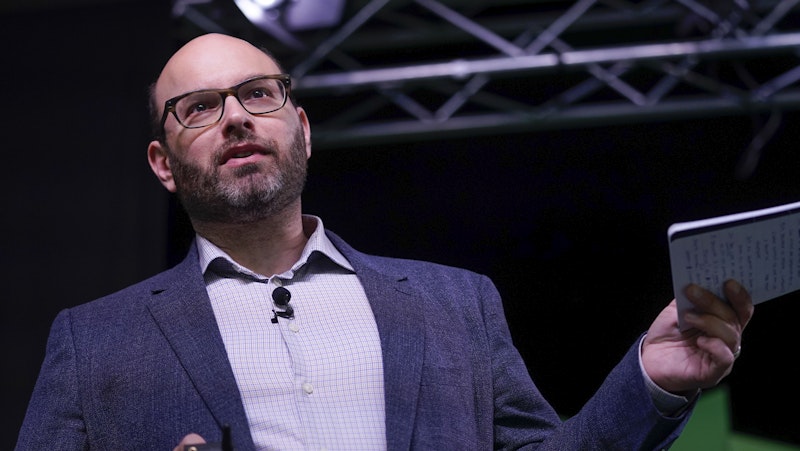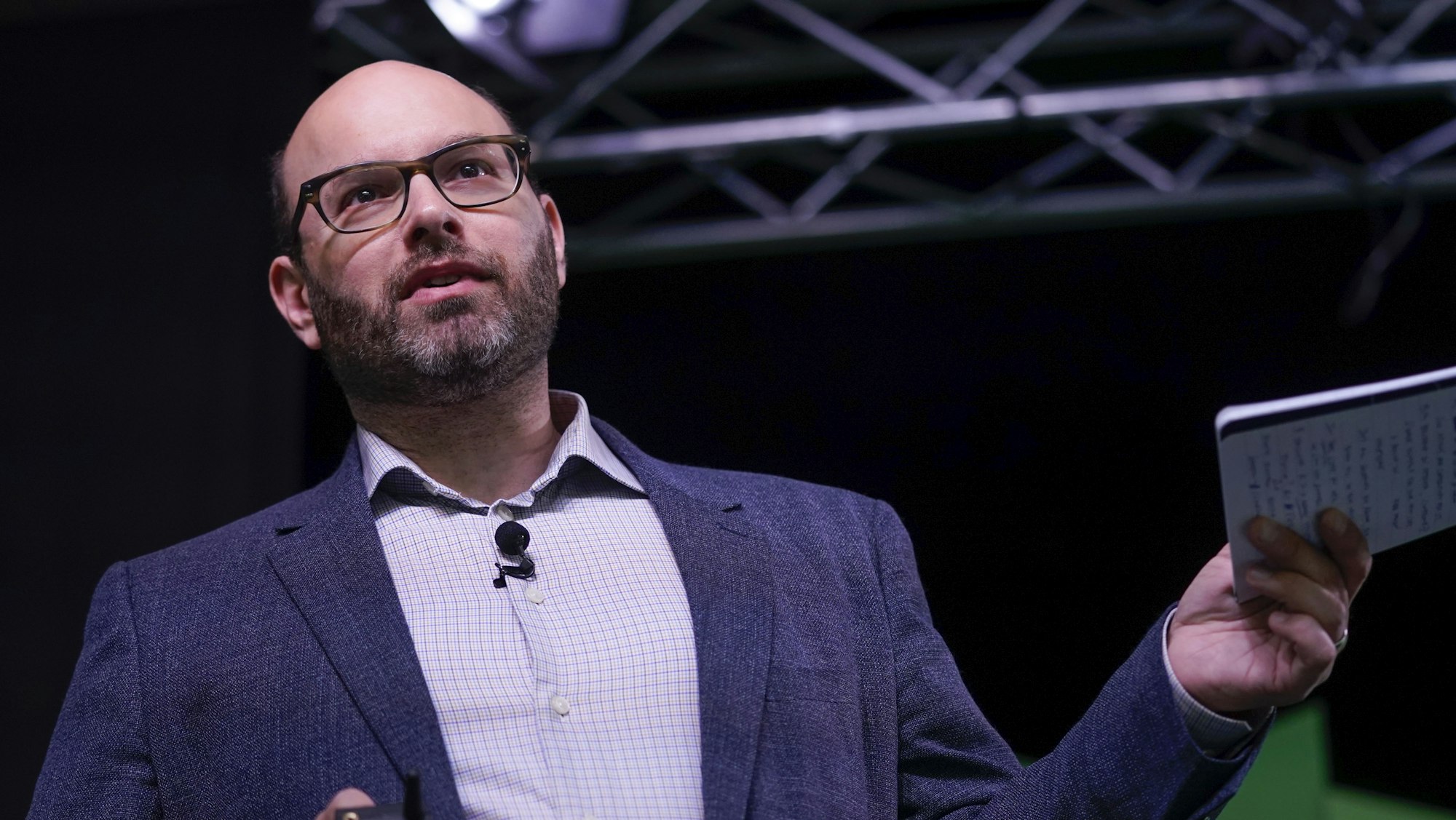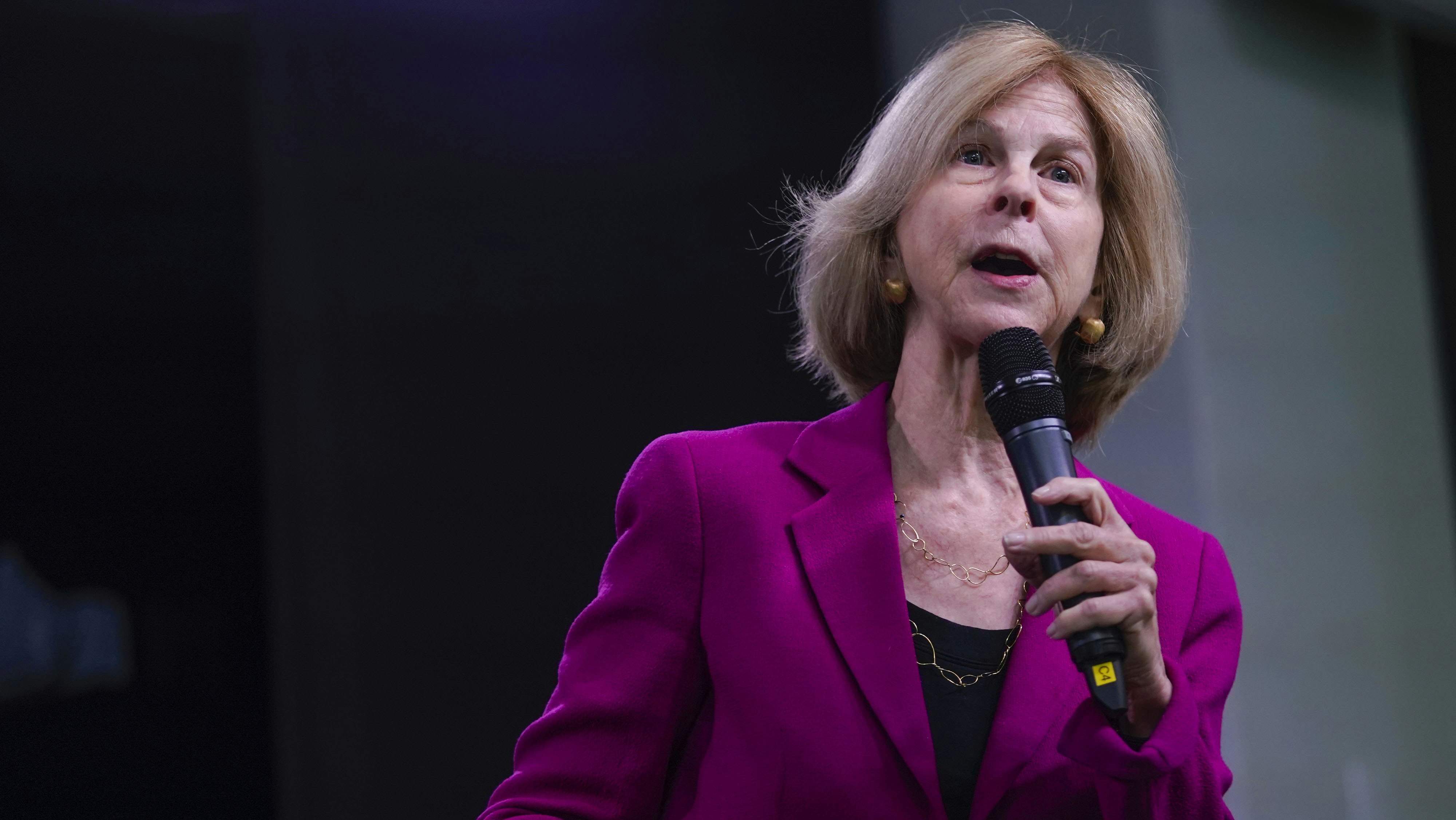

Jesus, Buddha, and the Search for Meaning
Setup
Jesus and Buddha, separated by 3,000 miles and 400 hundred years, both speak to central questions of meaning. How similar — and how different — are their perspectives and how do the teachings, rituals, and histories of each tradition complement or contradict each other? Take the one-hour version of this popular Princeton course and explore how Jesus and Buddha understood the meaning of life and death, suffering, and salvation.
- 2019 Festival
- Society
How a midlife crisis led the Buddha to teach
Both Buddha and Jesus experienced a pivotal moment in their lives — an awakening event — after which everything changed. After this awakening event, says Princeton religion professor Jonathan Gold, they both became moral exemplars and teachers. The Buddha’s journey as a religious figure began in midlife, when he realized his own mortality. “The Buddha felt that something had to be done about the problem of suffering and the problem of death,” Gold explains. To find answers, the Buddha turned to meditation and yoga. One night during an intensely focused meditation, says Gold, the Buddha defeated the demon of desire, Mara, and attained nirvana, an awakening and complete liberation from all suffering and delusion — a kind of perfect wisdom.
Out of compassion, the Buddha turned to teaching in the hope that he could share the path to liberation with others. Followers of the Buddha, says Gold, act virtuously and morally and follow five precepts:
The Five Precepts of Buddhism
These layers of morality are expressions of karma, Gold explains.
Karma
“How you act in the world is a direct reflection of your state of mind,” he says, and the Buddha teaches that virtuous action is the only way to calm the mind. By the same token, a calm mind sees how to act virtuously. “All you have to do is calm down and look, and you can see what’s right and wrong,” says Gold.
Jesus and judgment day
The Buddha’s teachings focus mainly on interior transformation — how to accept suffering and transcend it. Jesus’s story, on the other hand, focuses on how God’s spirit impels him to action, challenging evil powers and social and political suffering, says Elaine Pagels, professor of religion at Princeton. Watch Pagels detail the events that guided Jesus on his spiritual path:
Jesus’s teachings are contextualized by the belief that a day of judgement is coming, says Pagels. How will God judge the world? The principle of divine judgement is utterly straightforward, she explains — what you give is what you get. If you give to others generosity, understanding, and forgiveness, God will be generous, understanding, and forgiving to you. “It’s a precisely reciprocal response to your actions,” she says.
Two teachers, 3000 miles and four centuries apart
Jonathan Gold says a key benefit of studying religion is “that by juxtaposing differences and similarities, we can highlight the unique particularities of each tradition even as we deepen our understanding of what they share.” The teachings of Jesus and Buddha occur in different cultural contexts but the Bible and Buddhist scriptures share many principles. One obvious example, says Elaine Pagels, is that the five precepts can be seen in the ten commandments (with the exception of “take no intoxicants.” Wine was seen in Jewish tradition not as an intoxicant, but part of celebrating joyful events).
Big IdeaIf these [religious] traditions weren’t reappropriated, recreated, reinvented, and transformed to deal with the needs and issues of very different generations and people all over the world in different situations, they wouldn’t survive.Elaine Pagels
Both Buddha and Jesus asked their followers to do more than just refrain from negative behavior. “The Buddhist tradition says that most of our motivations need to be reexamined,” Gold explains. It’s not enough to be superficially moral and doing good for the sake of appearances — you should be actively thinking about others more than yourself, and, adds Pagels, following the age-old golden rule: do unto others what you would have them do to you.
Learn More
Additional Information
Resources
Through Personal Testament, ‘Why Religion?’ Explores Belief in the 21st Century
Elaine Pagels, Why Religion?
Paving the Great Way: Vasubandhu's Unifying Buddhist Philosophy
Jonathan Gold and Robert Wright: Paving the Great Way
Explore More
Society


Living as a trans person in America comes with its share of challenges, which are sometimes even life-threatening. But some say it can also open up access to incredible freedo...

Global conflicts and health crises have put into stark relief deeply-ingrained gender roles in society. Yet the past years have also seen record-high numbers of women running...

The people in our lives shape who we are. But great relationships don’t just happen — they take care, intention, and ongoing effort. How do you know when to let go, adjust exp...


Advances in medicine and healthy living mean that more and more people will live to be 100. But just because their bodies can last doesn’t mean their bank accounts will keep u...


In the early days of cable television, there wasn’t a single network aimed at Black audiences. Sheila Johnson and her husband at the time saw an opening, and put all their hop...


Owning a professional sports team is not for the faint of heart. Results are volatile and wins and losses come with the strong emotions of a city’s fan base. But it’s a sound...


Looking around and experiencing the suffering and injustice in the world can make it difficult to believe that happiness exists. But the Judeo-Christian tradition teaches that...


This episode is from the 2022 Aspen Ideas Festival, but we’re bringing it back because it’s still as relevant as ever. Though it can sometimes feel like conflict and discord i...


Sir Ken Robinson believed that as a society, we tragically underestimate and underutilize human ability. We create linear systems for our minds modeled on industry and manufac...


Young people in America are struggling. The causes are varied and may not be entirely clear, but the results are unfortunately unmistakable. Many of our youth feel lonely, iso...

New York Times columnist and bestselling author David Brooks is known for bringing his thoughtful reflections on politics and culture, but at this year’s Aspen Ideas Festival,...

Jump in by watching our 15 most popular talks of all time. From black holes to jazz and civil rights to psychology hacks, we've collected the talks that remain audience favori...

Finding the national and global headlines understandably bleak lately? Whether you need mental distraction or stimulation, engross yourself in compelling topics and get a gli...

Today's kids are coming of age against a backdrop of political, social, technological and economic upheaval. While these circumstances are shaping a precocious generation that...


Hope seems like a simple concept, but the feeling can be difficult to hold onto. And when times are difficult and chaos swirls around us, it’s more important than ever. How do...

Advocates, healthcare providers, legislators, researchers, and venture capitalists are bringing the unique health needs of women to light – from vigorous policy debates on iss...

Ethical dilemmas, stakeholder pressure, building trust — leading organizations requires wisdom and stamina from the top. Who wouldn’t want some advice?

What makes us happy — really? How can we raise resilient and empathetic children? What does it mean to be truly connected in our increasingly digital world? Can we re-instill...

Our need for human connection is profound and deep. Yet, today, one in two adults are living with measurable levels of loneliness – and the numbers are even higher among young...


Conflict and suffering can bring out the worst in people, but it can also bring out the best. This is one of the lessons New York Times columnist Nicholas Kristof has learned...










